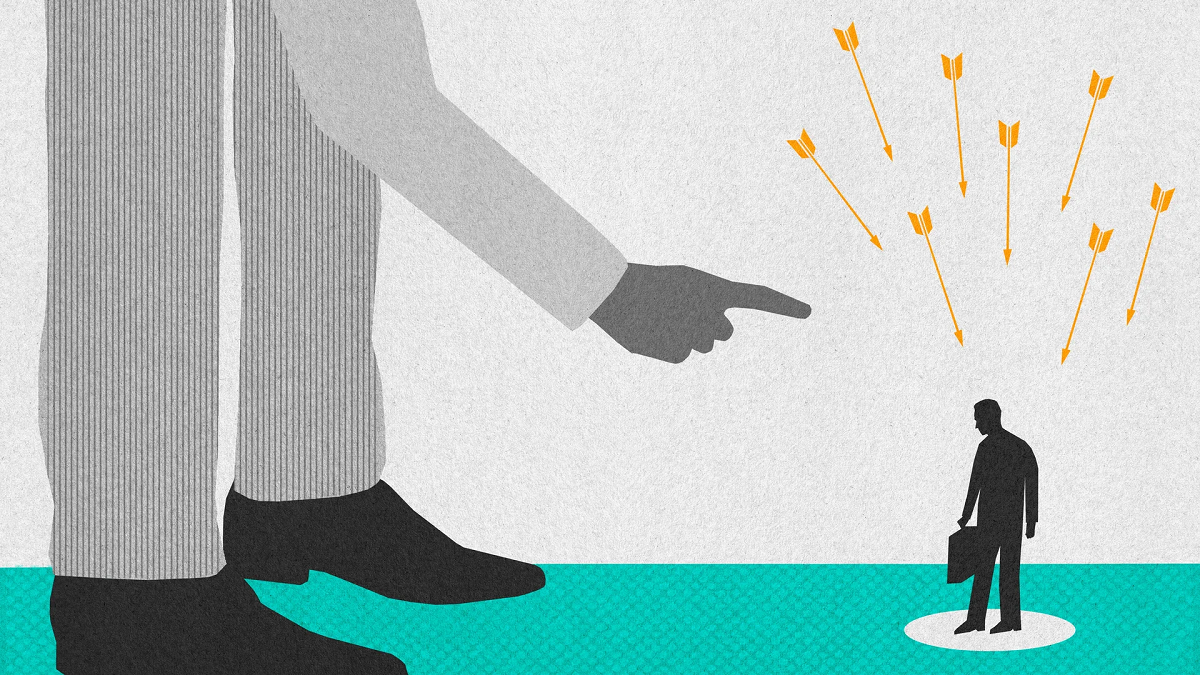The desire to be regarded as a natural one. Humans are social creatures after all, and we all want to be respected by our tribe. Therefore, it is understandable that criticism might be hurtful and emotionally upsetting. Indeed, researchers in a recent study of how to not take things personally examined in detail how people responded to movies that included social judgment, both positive and negative.
Thirty-seven participants’ actions while watching recordings of persons making neutral, positive, and negative words that appealed to fundamental emotions were examined by researchers. According to the findings, “criticism hurt everybody.”
Even while certain remarks or behaviors are hurtful, if you often feel as though someone is trying to hurt you emotionally or if you believe that someone did it on purpose, you may be prone to taking things too personally.
Tips For Not Taking Things Personally

1. Understand That People’s Actions Are Reflection of Them, Not You
One of the most important answers to how to not take things personally is that people’s behavior is often more about them than it is about you. Whether it’s an offhand comment, a criticism, or a rude gesture, the other person’s actions usually reflect their own experiences, insecurities, or emotional state.
When someone snaps at you or makes a judgmental remark, remember that their behavior could be rooted in their struggles, fears, or frustrations. By recognizing that their actions are a reflection of their inner world rather than a direct attack on your worth, you can avoid personalizing the situation.
2. Separate Your Self-Worth from Others’ Opinions
It’s easy to tie our sense of self-worth to how others perceive us. However, this can lead to a fragile self-esteem that fluctuates with every compliment or criticism we receive.
To stop taking things personally, it is essential to develop a sense of self-worth that is independent of external validation. Cultivate self-love, practice self-compassion, and remind yourself of your strengths and accomplishments. When you feel confident in your identity and values, you are less likely to be shaken by the opinions or behavior of others.
3. Recognize That You Can’t Control Others
It’s important to remember that you cannot control how others think, feel, or act to know how to stop taking things personally. People have their own beliefs, perspectives, and emotional triggers that influence their behavior.
If someone reacts negatively to you or says something hurtful, it may have more to do with their issues than anything you have done. By accepting that you can’t control others’ actions, you empower yourself to focus on how you respond rather than becoming emotionally entangled in their reactions.
4. Take a Step Back and Reflect Before Reacting
When faced with a situation that makes you feel personally attacked, it’s easy to react impulsively. However, taking a moment to pause and reflect can provide valuable perspective. Before internalizing the situation, ask yourself if the comment or action truly reflects who you are.
Is it based on facts, or is it merely someone’s opinion or misperception? Often, taking a breath and creating space between the stimulus (what was said or done) and your response can help you maintain emotional distance and not take things personally.
5. Practice Empathy and Consider Other Perspectives
Sometimes, struggling to know how to not take things personally stems from not understanding where the other person is coming from. People’s actions are influenced by their own life experiences, emotions, and stressors.
Practicing empathy allows you to consider the bigger picture and recognize that someone’s behavior may have little to do with you as an individual. Perhaps the person is having a bad day or is dealing with something in their own life that is causing them to act in a certain way. When you approach situations with empathy, you can detach from the negative impact of their words or actions.
6. Develop a Healthy Sense of Boundaries
Establishing and maintaining healthy boundaries is essential to not taking things personally. Boundaries allow you to protect your emotional space and prevent others’ negativity from seeping into your sense of self.
By clearly defining what is acceptable behavior from others, you give yourself the ability to respond appropriately when those boundaries are crossed, rather than internalizing hurtful comments or actions. A strong sense of boundaries helps you realize that you don’t have to accept or take on other people’s negativity.
7. Reframe Criticism as Constructive Feedback
Criticism can be one of the most challenging things to deal with, especially if it feels personal, yet one of the answers to how to stop taking things personally. However, learning to reframe criticism as constructive feedback can help you see it from a more objective perspective.
Instead of viewing criticism as an attack, try to see it as an opportunity for growth and self-improvement. This shift in mindset allows you to detach emotionally from the situation and respond in a way that is both calm and productive. Even when criticism feels harsh, it can be valuable in helping you learn and grow.
8. Cultivate Mindfulness and Emotional Awareness
Mindfulness practices, such as meditation and deep breathing, can help you become more aware of your emotional reactions. By being in tune with your feelings, you can identify when you are taking something personally and take steps to diffuse your emotional response.
Mindfulness helps you separate your thoughts from your emotions, allowing you to recognize when you are reacting impulsively and choose a more measured response. Over time, regular mindfulness practice can increase your emotional resilience and reduce the tendency to take things personally.
Why Some People Take Things Personally
Knowing how to not take things personally can be a common emotional response to perceived criticism, rejection, or misunderstanding. While everyone may experience this from time to time, some people are more prone to internalizing situations or comments as personal attacks.
Understanding why this happens is crucial in fostering emotional resilience and healthier relationships. Several psychological, social, and emotional factors contribute to why some individuals are more likely to take things personally.
One of the primary reasons is low self-esteem or insecurity. People with a fragile sense of self-worth often rely heavily on the approval of others for validation. When they encounter negative feedback, harsh comments, or even neutral interactions that they perceive as negative, they may interpret these as reflections of their inadequacies.
For these individuals, external judgments are internalized as affirmations of their perceived flaws, leading them to feel hurt or rejected. Another factor is past experiences and emotional baggage. Individuals who have experienced trauma, neglect, or significant emotional pain in the past may have developed a heightened sensitivity to perceived slights.
For example, someone who has been bullied or criticized in their childhood may carry these wounds into adulthood, making them more likely to take things personally. Past hurt can create a lens through which current interactions are viewed, triggering emotional responses that may be disproportionate to the situation.
Personality traits also play a role. People with certain personality traits, such as high levels of neuroticism, may be more inclined to take things personally. These individuals tend to experience negative emotions more intensely and often worry excessively about what others think of them.
On the other hand, people with a more resilient or emotionally stable personality are generally better able to detach from external opinions and view situations more objectively.
FAQ
Q: Why is it best not to take things personally?
A: Your professional performance and personal well-being may suffer if you take things too personally in your work. It may result in poor self-esteem, self-doubt, and a persistent dread of not measuring up.
Q: Why do people get so worked up about things?
A: Something has touched a chord if you tend to take things personally when they are not. You are transferring your uncertainties and fears onto others. You assume that others will not like the things about you that you find objectionable.
Q: Is taking things personally a negative thing?
A: Have you ever experienced pain, anger, confusion, or distress as a result of someone’s words or actions? Since it’s all too simple to take things personally, this is a familiar experience for many people. Taking things personally, however, may be detrimental to your well-being and mental health.











